Teaching Traveling: Welcome to Bonnie Kassel, world traveler, artist, and author of Without a Spare: A Fearless Woman’s Life of Travel. Bonnie, tell us about your background.
Bonnie: I was born in New York City and have been an artist and traveler all my life. Except for a short stint as a substitute teacher, I’ve never been a teacher per se. But I believe that travelers (as opposed to tourists), constantly alternate between being students and teachers.
A good example of this would be the five-months I spent studying backstrap weaving in small remote villages of Guatemala for my Master’s thesis. Six years later, a friend and I led ten women on a weaving expedition to the highlands of Guatemala sponsored by the Explorer’s Club in New York.
We arranged for classes with my former teachers, knew the best markets to buy cotton and silk threads, stayed at the sweetest places owned by people who’d become friends. Everything I’d learned as a student came into play as a teacher.
TT: Such a good point! Travel makes us all teachers and students. Tell us more about your travels.
B: Though my life has been filled with a series of “interesting” trips, the most spectacular would have to be the year my friend Barbara and I attempted to drive the length of Africa from Cairo to Capetown in a Volkswagen.
One year turned out not to be enough. Egypt, Sudan, and Ethiopia were so fascinating, six months passed before we arrived in Kenya. Then we made so many friends in East Africa, another six months flew by.
It was a long time ago and another reason it’s remained such a memorable trip is that it couldn’t be repeated now. I’m a big believer in not putting things off and taking opportunities when they presents themselves. If I hadn’t gotten to experience Iran, Pakistan, and the extraordinary Syria, I’d be diminished today.
TT: WOW! How did you create this epic travel opportunity?
B: Barbara had a friend Diallo from Ethiopia who talked incessantly about his country and Haile Selassie. Barb became obsessed and was determined to go there. If you don’t research anything and just look at a map and see where Ethiopia is located, it sort of makes sense to think one could just drive from Egypt and then continue on to see the wildlife of East Africa.
TT: Amazing. How did you fund this trip?
B: We were still in our twenties when we made the Africa trip. Our parents let us live at home rent-free and we banked every penny from our summer jobs. Few people are able to do everything they want, when they want; most of us have to pick and choose. If you’re not into “stuff,” one has a lot more choices. Try going on a buying moratorium– it’s amazing how the $5 and $10 not spent begins to add up.
TT: So true. Tell us one moment from your travels that was particularly funny.
B: Since learning to bake with my grandmother as a child, I’ve loved to cook. No matter what country I’m in, there’s always someone willing to let me be their sous-chef and help them prepare a meal.
I’ve approached street vendors and chefs in restaurants. Another tip is to ask around the local market for a person reputed for their cooking, then when you find them, offer to pay for a class or two.
It’s a completely visual activity so a common language becomes unimportant. The Turkish, Indian, and Mexican food I make at home today was all learned in this way. But it was in Morocco, Fez to be specific, that I learned to make the most succulent spicy-sweet stew infused with honey, cinnamon, and pistachios that elevated my status in the kitchen.
I served it in my home to guests from Montreal and they begged for the recipe. Of course there wasn’t one, so the next time I made it, I wrote down the approximate amounts of vegetables and spices as I threw ingredients in the pot. The following year it was our turn to be the guests of our Canadian friends.
They were having a dinner party for a Parisian couple who’d come to Montreal to open an elegant restaurant. We were twelve sitting at a long table and as a surprise, the hosts had prepared my Moroccan stew.
The dish was brought in with dramatic fanfare and the announcement, “Bonnie was kind enough to share this fantastic recipe.” Of course, you already know what comes next. It wasn’t simply not good, it bordered on vile. I couldn’t say or do anything as I watched everyone graciously push things around their plates.
But when we went to bed that night, my boyfriend and I had to put pillows over our faces to muffle the laughter. We couldn’t stop. Even months later, when we pictured the pained looks on the French couple’s faces, we’d start laughing again!
TT: Hah! How have your travels impacted you in your current career?
B: As an undergraduate student in America, most of the art I studied was Western. Through travel I was introduced to new worlds — Coptic, Byzantine, Mayan, Indian, Himalayan, Egyptian, etc. All you have to do is look at the attached photos of the Ethiopian Coptic door and then my batik to know the answer to your question. Travel has impacted everything I create.
Early paintings and batiks were inspired by the trove of sketches I made traveling–the batiks were soaked in bleach to reproduce the frescos I’d seen on temple walls. Later work was mostly large woven installation murals executed in strips of metal, primarily copper and brass, influenced by the magnificent textiles I’d seen around the world.
TT: How have your travels impacted you as a person?
B: My parents were “helicopter parents” in the days well before the term existed. They micromanaged every aspect of our lives so thoroughly that my brother, sister and I all grew up feeling we could do nothing well without them.
After college, when Barbara and I left to tour Europe, we ended up traveling for years. The only communication with family was the occasional letter, which meant that we faced problems and made decisions on our own for the first time.
We found jobs when we ran out of money and did anything from working as barmaids on an army base in Germany to cleaning trunks for an antique shop in Kenya. During this time, particularly in the year it took to drive from Cairo to Capetown, Barb and I faced so many obstacles successfully, we never doubted our abilities again.
TT: So inspiring. What advice do you have for teachers who are dreaming of travel, or travelers dreaming of teaching?
For teachers who are dreaming of travel, stop dreaming and go. It’s incredible how inexpensively one can travel to really great places. Renting a house as a base for a month is not only cost efficient, there’s no better way to learn about a country and become part of the community.
After a couple of weeks, you and the shopkeepers will be addressing each other by name and shouting “good morning” in the local language. If you select the rich historical area of a country like in Mexico or Turkey for example, there are so many things to discover on day or overnight trips, you save on transportation costs as one doesn’t need to go far from “home.”
Another even less expensive option, but with more responsibilities, is house sitting. If you love animals (almost all involve the care of beloved pets), and are tidy and reliable, check out The Ultimate Guide to Housesitting by Jessica Ainlay and Dani Heinrich available on Amazon or their website, Globetrotter Girls. I came across this site by chance and it kept me up until two in the morning!
This same information applies to travelers dreaming of teaching. Sometimes it’s difficult to find positions in advance, but I’ve never been settled in a place for long before an opportunity doesn’t present itself. Language teachers are always needed — in schools as well as within volunteer organizations.
Please don’t think of travel as a luxury. I can usually tell within two minutes of speaking with someone if they’ve never left their country. As we connect with people in other cultures, it’s almost impossible to have an “us and them” philosophy. And shouldn’t a broad worldview an essential quality to being a good teacher?
TT: Thanks so much, Bonnie! Readers, what questions or comments do you have for this remarkable woman?
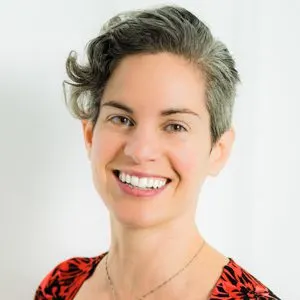
The author, Lillie Marshall, is a 6-foot-tall National Board Certified Teacher of English from Boston who has been a public school educator since 2003. She launched TeachingTraveling.com in 2010 to share expert global education resources, and over 1.6 million readers have visited over the past decade. Lillie also runs AroundTheWorld L.com Travel and Life Blog, and DrawingsOf.com for educational art. Do stay in touch via subscribing to her monthly newsletter, and following @WorldLillie on social media!
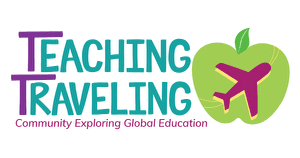
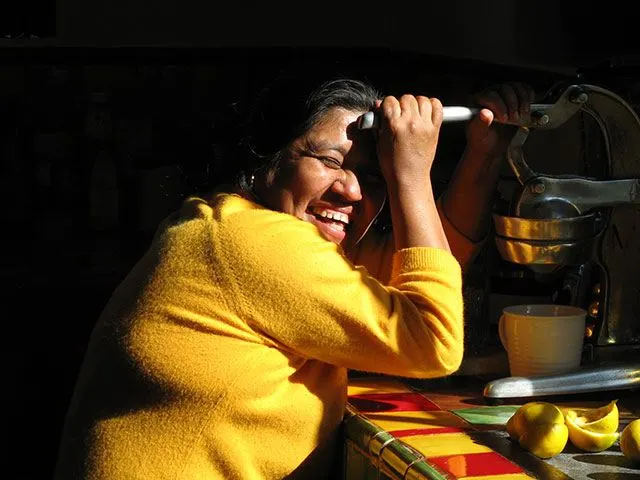
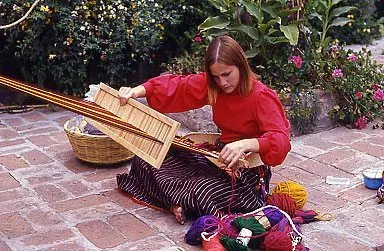
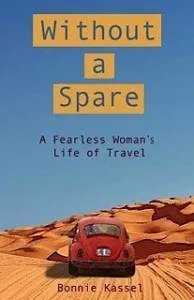
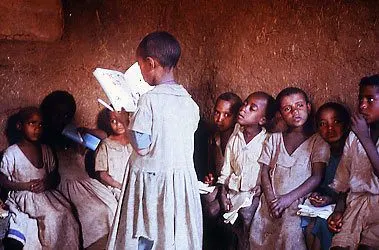
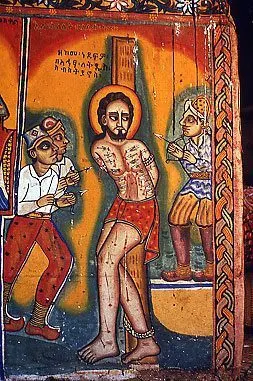
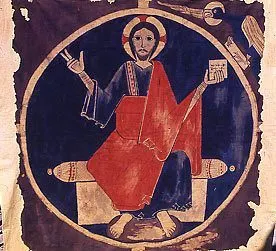
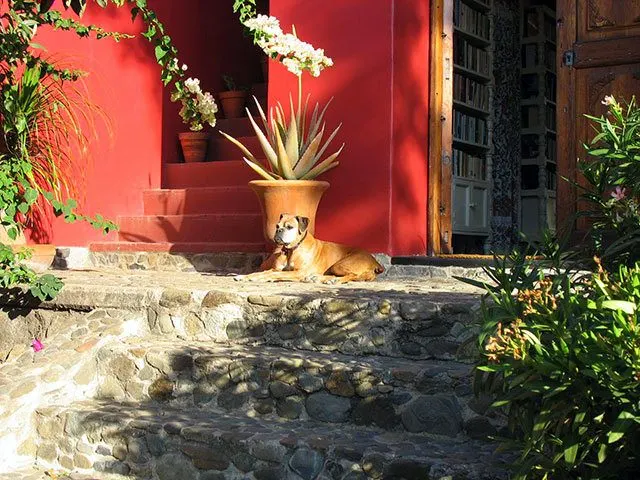

Lani
Thursday 17th of July 2014
Wonderful interview. You are so inspiring Bonnie. Love your stories.
Joan Auerbach
Monday 8th of July 2013
Travel makes us all teachers and students.
No truer words . . .
Bonnie Kassel's book attests to this. It is a stunning memoir that embraces the highs and lows of the traveling life, as seen through the eyes and heart of a natural born traveler. I'm looking forward to reading this book a second time.
Hey, it's summer. Time to indulge!
Joan A.
I.J. Miller
Monday 8th of July 2013
Bonnie and her travels sound really interesting. Can't wait to read her book!
Dani
Monday 8th of July 2013
Bonnie is such an inspiring world traveler! I read her book last month and was fascinated by her travels through India, Africa and Turkey, long before these places became popular with tourists. Her story about driving through the Sahara Desert in a VW Beetle is still my favorite.
Bonnie Kassel
Monday 8th of July 2013
Lillie,
What a great job you did organizing our interview! Your insightful questions made it easy for me to sound interesting and the placement of photos is excellent. I love to talk about travel and will have ample time to respond to comments as I'm housesitting alone in Mexico for 5 weeks this summer! Bonnie
Lillie of TeachingTraveling.com
Monday 8th of July 2013
Thanks, Bonnie! I look forward to seeing reader comments!